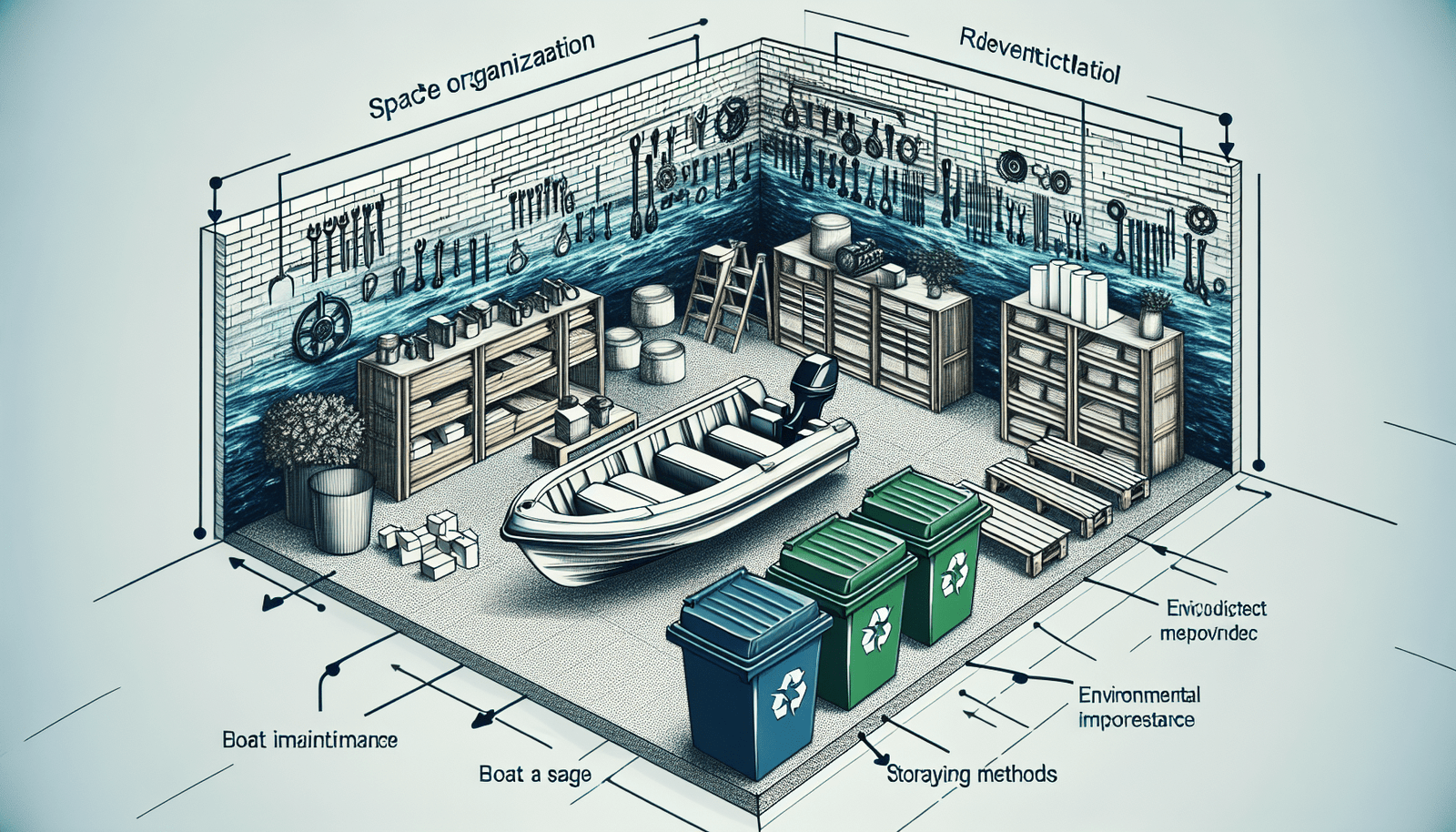As a boat owner, handling engine maintenance and storage can often be a strenuous task. This article titled “Minimizing The Footprint Of Boat Engine Maintenance And Storage” provides a valuable walkthrough to ease that burden. Tackling everything from the timing and frequency of tune-ups, handling boat engine repairs and replacements, to optimal off-season storage methods; this piece offers tips and techniques bound to make your boating experience more enjoyable and less tedious. Understanding and applying these practices allows you to navigate the waters with confidence, while also doing your part to minimize environmental impact.
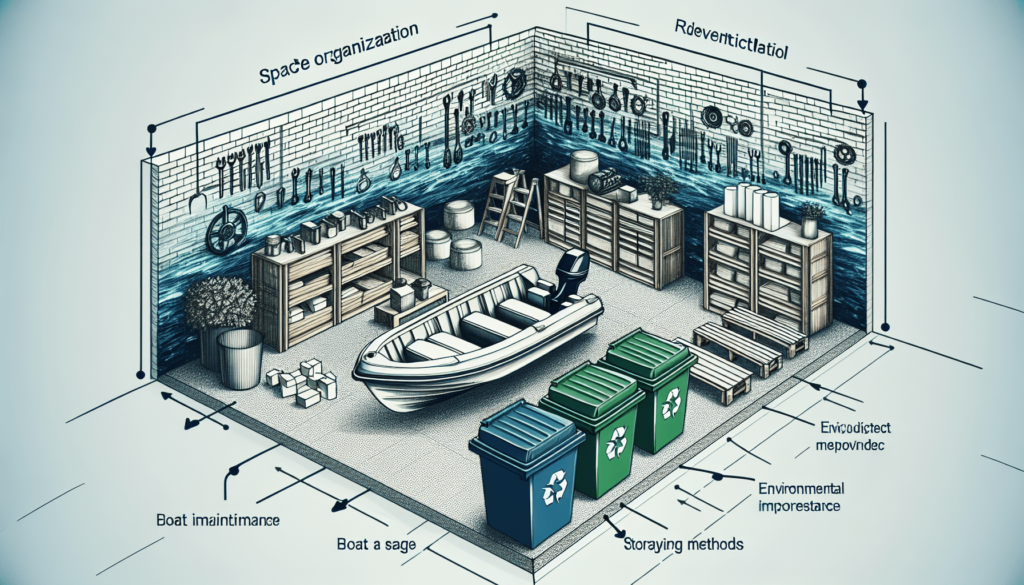
Understanding Environmental Impact of Boating
Boating activities, whether it’s for transportation, recreational fishing, or sailing, can significantly contribute to environmental degradation if not properly managed. Understanding the environmental impact of boating can help us appreciate the significance of minimizing our footprint.
The Significance of Minimizing Environmental Footprint
All activities related to boating, from engine maintenance to waste disposal, can leave behind traces in the environment. These traces or ‘footprints’ can over time, accumulate and cause harm to the environment. This is why it is essential to work towards minimizing this environmental footprint. By doing so, you can significantly reduce pollution, keep the waterways cleaner and contribute to overall environmental health. All of these in turn enhances the quality of your boating experiences.
The Role of Boat Engine Maintenance in Protecting the Environment
Regular engine maintenance plays a vital role in keeping our environment clean. A well-maintained boat engine emits less harmful gases, burn fuels more efficiently reducing the amount of waste produced. Moreover, routine maintenance helps prevent oil and fuel leaks that otherwise would find their way into the water bodies causing water pollution.
Local and Global Impacts of Boating Activities
On a local level, boating activities can pollute water bodies affecting the local marine life, while also creating noise and air pollution. Globally, the cumulative effect of boating activities contributes to environmental issues such as ocean acidification and climate change. Therefore, adopting environmental-friendly practices in boating can have a significant local and global impact.
Optimizing Maintenance Procedures
As a boat owner, you can make a huge difference to the environment by simply optimizing your boat maintenance procedures.
Regular Engine Maintenance to Reduce Harmful Emissions
Just like any other motor vehicle, boats need regular engine checks and maintenance. A properly maintained engine operates efficiently, reducing its harmful emissions and fuel consumption. It also helps you avoid unexpected breakdowns and ensures longer life span for your engine.
Choosing Eco-Friendly Engine Oils and Lubricants
There’s a wide range of eco-friendly engine oils and lubricants available in today’s market. These products are often derived from renewable resources and biodegrade more readily than traditional petroleum-based products, reducing water pollution and impact on marine life.
Proper Disposal of Boat Maintenance Waste Materials
Wastes produced during boat maintenance, like used engine oils, old batteries, and waste water, should be properly disposed of. Dumping them indiscriminately can cause serious harm to the environment. Many marinas have facilities where you can dispose these waste materials appropriately.
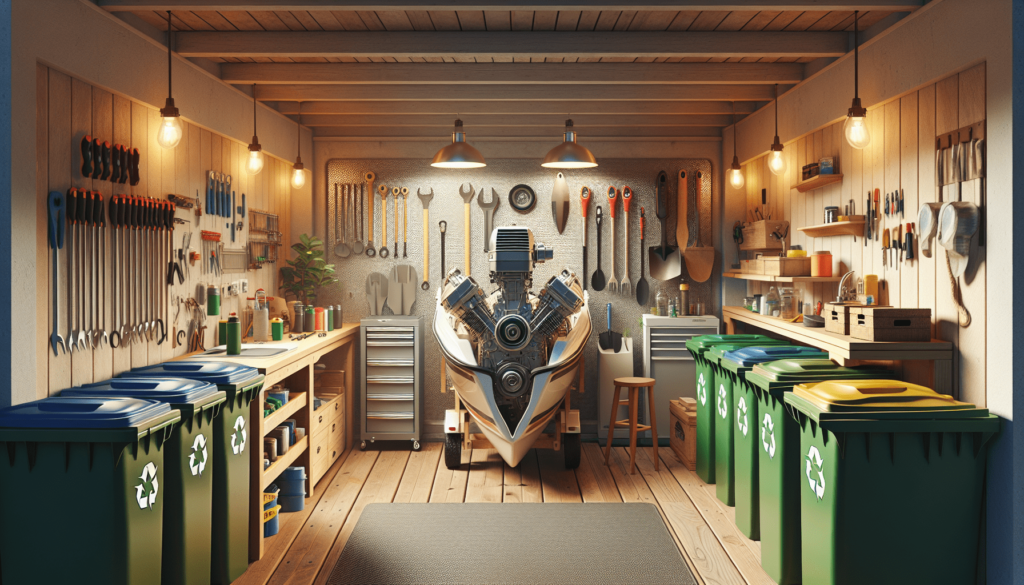
Embracing Eco-friendly Cleaning Methods
Cleaning your boat is another area where you can adopt more eco-friendly practices.
Using Bio-degradable Cleaning Agents
Hydrocarbons and phosphates in conventional cleaning agents can harm marine life when they leach into the water. Using biodegradable cleaning agents minimize this risk, while still effectively cleaning your boat.
Avoiding Use of Harmful Chemicals in Cleaning
Avoid cleaning agents that contain harmful chemicals like bleach or ammonia. These can harm fish and other marine life, moreover, they can corrode your boat’s finish. Seek out cleaning products that are labelled ‘non-toxic’, ‘phosphate-free’, or ‘chlorine-free’.
Reducing Water Usage in Boat Engine Cleaning Procedures
While cleaning, try to minimize the water usage. You can do this by using less water-intensive methods, and by ensuring your cleaning products are concentrated so you need to use less of them.
Educating about Responsible Boating
Education is an essential part in promoting environmental awareness and encouraging responsible boating.
Promoting Environmental Awareness Among Boat Owners
It is important that boat owners are aware of the environmental impact of boating activities and realize their responsibility in minimizing it. Educational campaigns, workshops and seminars are effective ways to promote such awareness.
Implementing Regular Training on Eco Friendly Boating Practices
Regular training on eco-friendly boating practice should be implemented. This will keep boat owners up-to-date on the best practices and techniques to reduce their environmental impact.
Enforcing Strict Regulations and Penalties for Irresponsible Boating
Regulations play a critical role in enforcing responsible boating. It’s crucial there are measurable standards for what constitutes responsible boating and that penalties for violations are significant enough to be a deterrent.
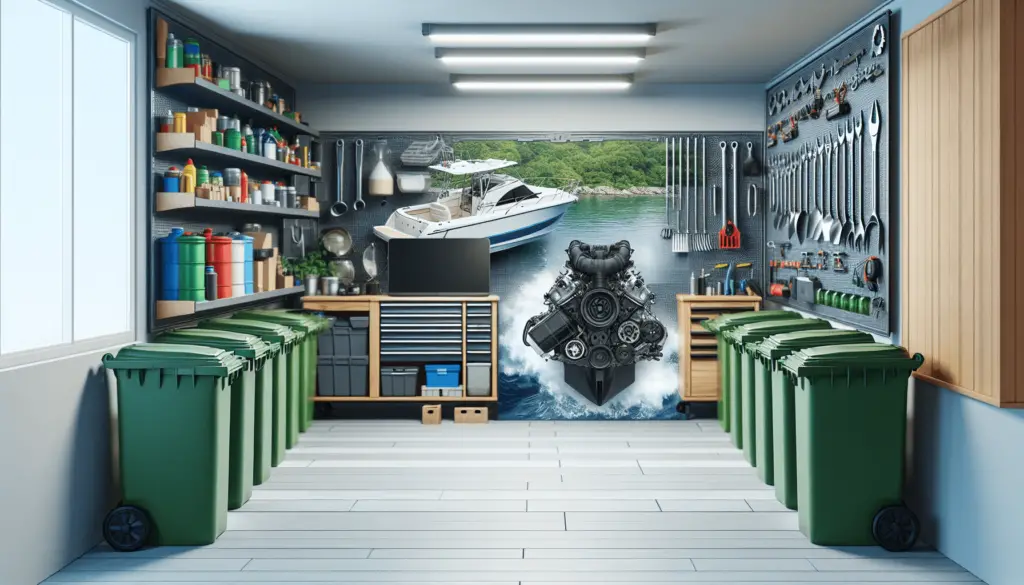
Energy Efficient Boat Engine Design and Operation
Incorporating energy-efficient features into boat engines is another area where significant improvements can be made.
Incorporating Energy Efficient Features in Boat Design
Investing in a well-designed, energy-efficient boat not only reduces your carbon footprint, but also saves you money in fuel costs. Modern boat designs are aimed at reducing drag, optimising propulsion and improving fuel efficiency.
The Role of Alternative Fuel Options in Reducing Environmental Impact
Alternative fuels, like biodiesel or electric power, can significantly reduce the environmental impact of boating. The use of these alternative fuels minimize emissions and dependence on non-renewable resources.
Bridging the Gap between Performance and Sustainability in Boat Engines
While performance has always been a priority, it’s essential to strike a balance with sustainability. Manufacturers are constantly innovating to develop boat engines that are powerful, efficient, and more environmentally-friendly.
Exploring Alternative Propulsion Systems
As boating technology evolves, there’s a growing interest in exploring alternative propulsion systems.
Understanding Electric and Hybrid Propulsion Systems
Electric and hybrids are becoming more popular among boat owners. While battery technology continues to improve, these types of boats emit zero emissions, operate quietly, and require less maintenance than traditional propulsion systems.
Reducing Dependency on Fossil Fuels
Reducing reliance on fossil fuels is a key factor in creating a greener boating future. By adopting energy-efficient engines and alternative propulsion systems, boat owners can lessen their dependency on fossil fuel.
Future Trends in Boat Propulsion Technology
From solar power to hydrogen cell technology, future boat propulsion systems are set to be more sustainable. Investors and manufacturers continually seek to innovate and improve technology for better, greener boating experiences.

Efficient Storage and Disposable of Boats
From storing to disposing of old boats, every step matters in ensuring a greener boating lifestyle.
Importance of Choosing Eco-Friendly Storage Options
Choosing marinas that take a green approach to storage can make a difference. Look for facilities that use renewable energy, adopt efficient waste management, and minimize water usage.
Proper Waste Management and Disposal of Old Boats
Disposing of old boats properly is as significant as maintaining them while in use. Old boats often contain harmful substances which can leak into the soil and water if not handled correctly. Be sure to utilize appropriate waste disposal facilities.
Exploring Boat Recycling Opportunities
Boat recycling is an emerging field that offers great potential. By reusing and recycling components from old boats, we can reduce waste and the need for new raw materials.
Regulatory Measures to Minimize Environmental Footprint
Regulation plays a pivotal role in reducing the environmental impact of boating.
The Role of Government in Enforcing Green Boating Regulations
Government agencies have a crucial role in setting and enforcing green boating regulations. They provide guidelines for safe and sustainable boating practices and ensure adherence through monitoring and penalties.
Case Studies of Successful Regulation Implementations
Learning from successful regulation implementations can offer valuable insights. These case studies can pave the way for devising effective policies in other regions.
Future Regulatory Measures and Their Potential Impact
Predicting future regulatory measures can help boat owners and manufacturers stay ahead of the curve. As the focus on environmental impact intensifies, we can expect stricter regulations and higher standards for boating practices and technology.
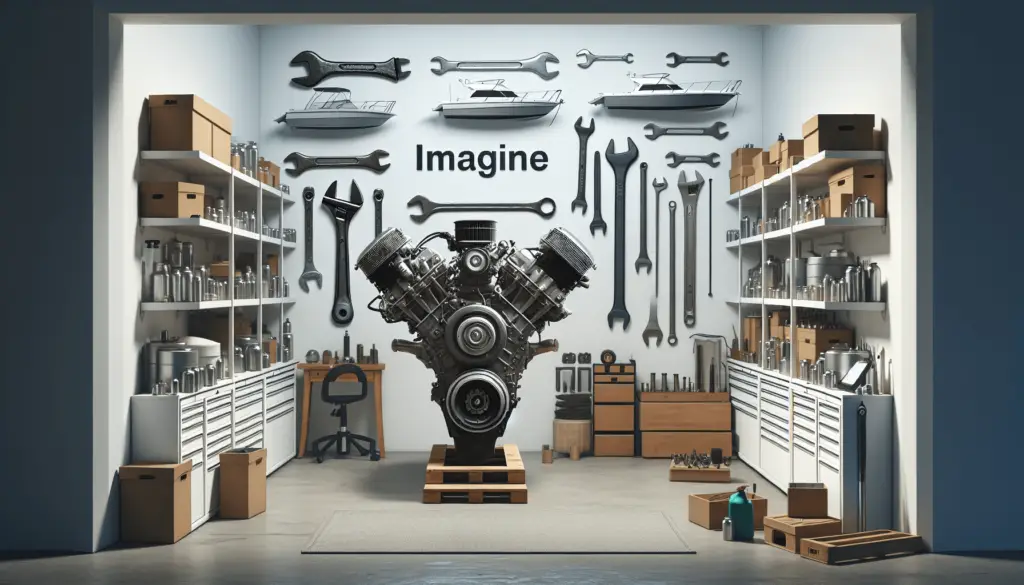
Adopting Sustainable Fishing Practices
Sustainable fishing practices are crucial if we want to protect our fisheries and marine ecosystems.
Impact of Fishing Gear on Marine Life
The wrong type of fishing gear can lead to habitat damage and bycatch. By using gear that is less intrusive and more targeted, we can minimize these impacts.
The Role of Catch Limits in Managing Fish Populations
Catch limits are important for ensuring sustainable fishing. Too much fishing can deplete fish populations and disrupt marine ecosystems. Catch limits ensure that fish populations have a chance to recover and thrive.
Addressing the Issue of Bycatch and Waste
Bycatch, the unintentional capture of non-target species, is a serious problem. By using more selective fishing gear and methods, we can reduce bycatch and waste, helping to maintain the diversity and health of ocean life.
Reducing Noise Pollution from Boat Engines
Lastly, it’s important to consider the noise pollution created by boat engines.
Understanding the Impact of Boat Noise on Marine Life
Noise from boats can interfere with the behavior and communication of marine life. Research shows that boat noise can cause stress in animals, disrupt their mating and feeding patterns, and even drive species away from their habitats.
Advancements in Noise-Reducing Boat Engine Design
Thankfully, there’s been a number of advancements in developing quieter boat engines. Technologies such as sound-proofing materials, and propeller designs that reduce cavitation noise, can help minimize the impact.
Role of Maintenance in Reducing Engine Noise
Regular boat maintenance can also play a role in reducing engine noise. A well-maintained engine operates more smoothly and quietly, creating less disruption to marine life.
Minimizing the environmental footprint of boating isn’t just about doing less harm — it’s about actively contributing to the health and resilience of our water bodies. By adopting the strategies outlined in this article, you can enjoy your time on the water, knowing you’re doing your part to protect these vital ecosystems.

